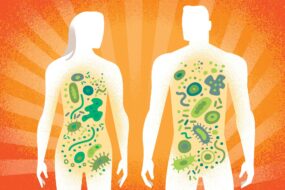
Imagine a person so out of shape that they can’t even walk to the mailbox without needing oxygen, but then, through sheer determination and the latest medical breakthroughs, they transform into a marathon runner, shedding hundreds of pounds and regaining their health. Sounds like a far-fetched dream, right? But for many, this isn’t just a fantasy; its their reality. the human body is capable of astonishing transformations, and the story of how people achieve such drastic changes is a interesting tale of science, perseverance, and the unrelenting pursuit of wellness.The journey ofen begins with a wake-up call, a moment when the consequences of neglecting one’s health become too severe to ignore. For some,it’s a near-death experience due to a heart condition; for others,it’s the diagnosis of a chronic illness that forces them to reevaluate their lifestyle choices. The customary approach to weight loss and fitness – diet and exercise – sometimes falls short for those dealing with severe obesity or complex health issues. That’s where medical science steps in, offering innovative solutions that can be life-changing. One such groundbreaking advancement is bariatric surgery, a procedure that has revolutionized the field of weight loss. By altering the digestive system, bariatric surgery limits the amount of food a person can consume and/or reduces the body’s ability to absorb nutrients. The results can be nothing short of miraculous. Patients frequently enough report critically important weight loss,improved blood sugar control,and even remission from type 2 diabetes. But the impact goes beyond the physical; the emotional and psychological transformations are just as profound. People who once felt trapped by their bodies begin to see the world in a new light, with renewed hope and a fresh viewpoint on life.
The science behind bariatric surgery is complex, involving a intricate dance of hormones, gut bacteria, and metabolic changes that together facilitate weight loss.One key player is the hormone ghrelin, frequently enough referred to as the “hunger hormone,” which is produced in the stomach and signals the brain when it’s time to eat. After bariatric surgery, ghrelin levels drop significantly, reducing hunger and making it easier for patients to stick to a healthier diet. Moreover, changes in the gut microbiome – the community of bacteria living in the digestive tract – also play a crucial role, influencing everything from nutrient absorption to mood regulation. some of the key benefits of bariatric surgery include:
Significant weight loss: Patients can expect to lose 50-70% of their excess weight within the first two years after surgery. Improved blood sugar control: Many patients experience remission from type 2 diabetes, and some may even be able to discontinue medication.* Enhanced mental health: The emotional and psychological transformations that come with bariatric surgery can be just as profound as the physical changes.
The narrative of health and fitness is also being rewritten by advances in our understanding of genetics and epigenetics. Researchers are uncovering how our genes influence our susceptibility to certain health conditions and how lifestyle choices can,in turn,affect gene expression.This two-way conversation between our genes and our surroundings is opening new avenues for personalized fitness and nutrition plans, tailored to an individual’s unique genetic profile. as an example, some people may have a genetic predisposition to respond better to certain types of exercise or diet, and identifying these patterns can help tailor interventions that are more effective.
The real-life impact of these developments is best illustrated through the stories of those who have undergone such transformations.take, for example, the case of a man who, after years of struggling with morbid obesity, underwent bariatric surgery and later lost over 300 pounds.Not only did he regain his physical health, but he also found the courage to start training for marathons, a feat that would have been unthinkable before his surgery. Or consider the story of a woman who, through genetic testing and personalized nutrition, was able to reverse her prediabetic condition and significantly improve her overall well-being.
As we continue to push the boundaries of what is possible in health and fitness, it’s clear that the future is bright. Technological innovations, such as wearable devices and mobile apps, are making it easier than ever for people to monitor their health, track their progress, and stay motivated on their fitness journey. meanwhile, the growing field of precision medicine promises to further tailor health interventions to the individual, leveraging data from genetics, lifestyle, and environmental factors to create highly personalized treatment plans.
the human body’s capacity for change is a powerful reminder of the intricate and dynamic relationship between our health, our choices, and the science that underpins it all. As we continue to explore and understand this complex interplay, we not only change individual lives but also reshape the landscape of health and fitness for generations to come.
#HealthTransformation #FitnessJourney #MedicalBreakthroughs #WellnessStory #scienceoffitness #PersonalizedMedicine #BariatricSurgery #GeneticTesting #PrecisionNutrition #HealthAndFitnessRevolution #ExtremeMakeover #ObesitySolutions #PublicHealthMatters #InspiringStoriesOfTransformation #TheFutureOfHealth








